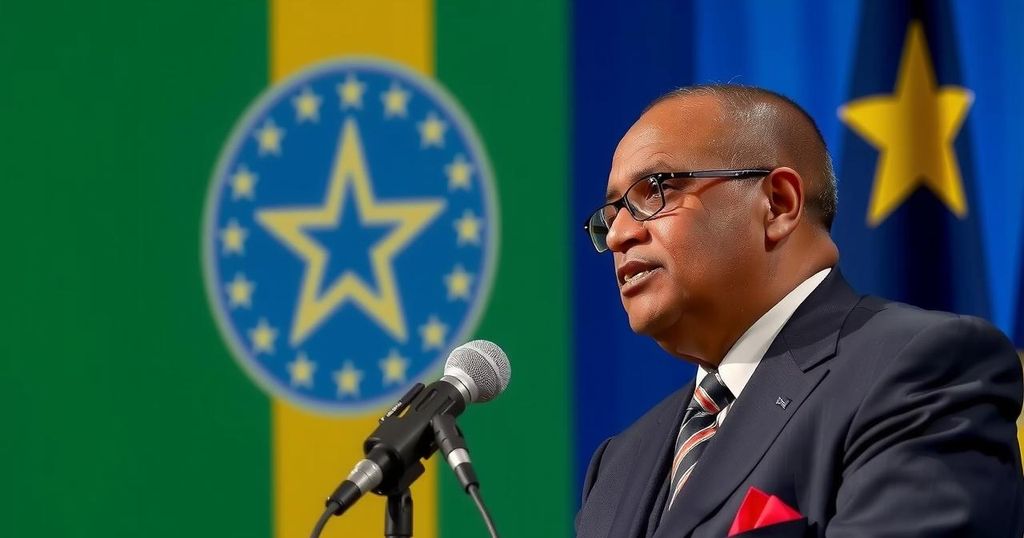Somalia’s President Hassan Sheikh Mohamud has condemned Ethiopia’s attempts to annex Somali territory while Ethiopian Prime Minister Abiy Ahmed emphasizes peaceful access to the Red Sea. Tensions rise as Somalia seeks defense alliances to counter perceived Ethiopian encroachments, with both leaders addressing the complexities of their nations’ historical grievances and current geopolitical strategies.
Ethiopian President Abiy Ahmed recently expressed his country’s desire for access to the Red Sea, emphasizing that Ethiopia seeks such access through peaceful means rather than conflict. This statement comes amidst a backdrop of mounting tensions with Somalia, where President Hassan Sheikh Mohamud has criticized Ethiopia’s historical and ongoing territorial claims. In a parliamentary address, President Mohamud accused Ethiopia of attempting to annex Somali land and highlighted the long-standing issues that date back to colonial times. Specifically referencing Ethiopia’s maneuvers in the region, he stated, “Ethiopia occupies Somali land from colonial times and aims to take more now.” This assertion underscores concerns regarding Ethiopia’s territorial ambitions, particularly following recent agreements between Ethiopia and Somaliland that may alter the geopolitical landscape in the Horn of Africa. President Mohamud further defended Somalia’s military operations against the militant group Al-Shabaab, asserting that progress has been achieved without the assistance of Ethiopian forces, who are currently part of the African Union Transition Mission in Somalia (ATMIS). Somalia has called for the withdrawal of these troops in anticipation of a new mission that would succeed ATMIS. He remarked, “The intimidation that without Ethiopia Al-Shabaab will take over the country is unfounded.” The growing hostilities have prompted Somalia to solidify defense alliances with Egypt and Turkey to stabilize its sovereignty against Ethiopian encroachments. President Mohamud insisted that Ethiopia cannot act contrary to the principles of the African Union while simultaneously being its headquarters. These developments highlight the delicate balance of power and the intricate history of territorial disputes in the region. As both nations navigate their interests, it remains to be seen how these tensions will evolve in the coming months.
The tensions between Ethiopia and Somalia are deeply rooted in a complex history of colonial territorial divisions, which have left lasting impacts on the relationships among the nations in the Horn of Africa. These ongoing disputes are exacerbated by geopolitical strategies—Ethiopia has sought to bolster its claims to the Red Sea through agreements with Somaliland, while Somalia asserts its territorial integrity in the face of perceived encroachments. The region’s dynamic political landscape is further complicated by the implications of military collaborations with external powers like Egypt and Turkey. Recent statements from both leaders reflect the heightened stakes and the potential for conflict that loom amidst these historical grievances and national aspirations.
In conclusion, the ongoing territorial disputes between Ethiopia and Somalia highlight a significant rift in relations, rooted in historical claims and modern geopolitical strategies. President Hassan Sheikh Mohamud’s denunciation of Ethiopia’s ambitions and the call for stronger defense alliances illustrate Somalia’s commitment to safeguarding its sovereignty. As both countries navigate their rights to territorial claims and regional influence, the stability of the Horn of Africa hangs in the balance, underscoring the need for diplomatic solutions to longstanding issues.
Original Source: www.garoweonline.com






